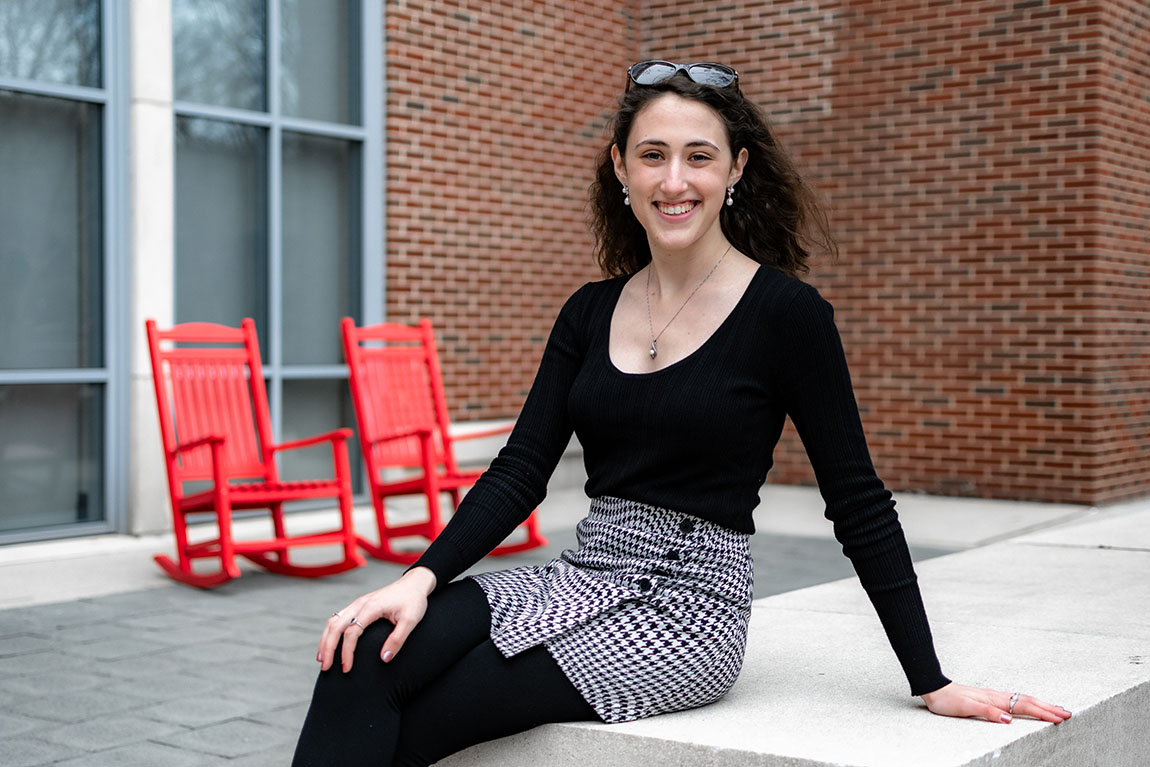Meet Camryn Griffon ’23, A Prelaw Neuroscience and Public Health Double Major
Griffon, who will attend Penn State Dickinson Law, conducted research on the use of active and passive voice in closing arguments of criminal cases with Assistant Professor of Psychology Alexandra Frazer.By: Meghan Kita Wednesday, April 5, 2023 07:47 AM
 Camryn Griffon ’23. Photo by Joe Romano ’23
Camryn Griffon ’23. Photo by Joe Romano ’23She knew right away that she would thrive as a neuroscience major …
“I came into Muhlenberg thinking I wanted to be a psychiatrist. I was taking all the premed classes. I’ve always been interested in science, especially the brain and behavior, so I thought neuroscience would be a perfect major for me, and it is.”
… and she discovered her passion for public health as she continued her studies.
“I was thinking of taking Issues in Public Health to fulfill an academic requirement and my friend, a public health major, was like, ‘Definitely take that class.’ I fell in love with public health. Through my public health classes, I’ve realized that by working on more of a grand scale rather than on an individualistic, case-by-case medical scale you can affect more people.”
Her academic exploration helped her see the connections between her majors and a future legal career.
“I ended up switching from premed to prelaw because I thought that the law would allow me more flexibility in helping more people. Having a background in neuroscience and public health, while it sounds unusual, complements the law. There aren’t many people who go from science to law but it’s so necessary in certain fields, like environmental law or health law. You need to be able to understand scientific findings. Public health and law also complement each other because public health is about bettering the health of your community and of people on a wide scale, and I’m really interested in advocacy work.”
She conducted linguistics research with Assistant Professor of Psychology Alexandra Frazer as part of the Dana Scholars honors program …
“I looked at closing arguments from 13 different cases and I coded all the verbs as being active or passive. Then, I was able to do statistical analyses on those results. I found that while both the defense and the prosecution used the active voice more than the passive, the defense used the passive voice more than the prosecution. The passive voice distances a listener from the events by shifting the blame — it places the blame not on the subject or actor of the sentence but on the object. It makes sense that the defense attorneys would be using more passive voice than the prosecution because they would be trying to distance their client from the criminal action.”
… and the pair are hoping to publish the resulting article.
“[Frazer and I] have an article pending — we submitted it to The Journal of Language and Social Psychology and are waiting to hear back. The way that people express themselves in language is so important. Even though I’m a neuroscience and public health major, I was still interested in linguistics. This research is just another manifestation of being able to pursue your different interests at Muhlenberg.”
